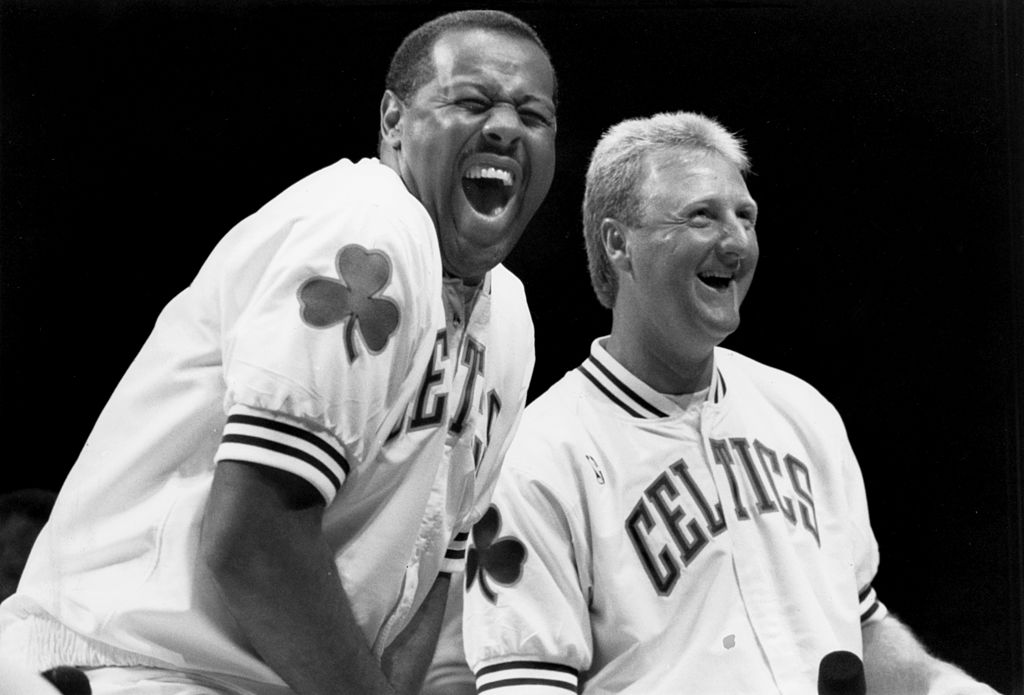NBA
What Happened to M.L. Carr, Who Helped Transform the Boston Celtics?

With his penchant for hard-nosed defense, M.L. Carr was a disruptive force for the Boston Celtics on the court. Carr also disrupted the balance of power in the NBA by signing with the Celtics early in his career as a free agent.
That decision and what ensued signaled the rise of the Celtics and set the Pistons back by another five years because of a terrible miscalculation.
The Boston Celtics signed M.L. Carr and then fleeced the Pistons
Basketball standout M.L. Carr followed the best offensive season of his basketball career – including 51.4% shooting from the field – by leaving the Detroit Pistons in free agency in the spring of 1979. At 29-53 that season the Celtics were one game worse than the Pistons, but fortunes were about to change beginning with the acquisition of Carr.
Under NBA rules at the time, the Celtics’ signing of Carr required compensation. The Pistons wanted Bob McAdoo, a three-time NBA scoring champion earlier in the decade, but the Celtics needed something in return to make the deal equitable and the Pistons agreed to give Boston two first-round draft picks in the 1980 draft.
Celtics general manager Red Auerbach took those two picks – which turned out to be the first overall after the Pistons fell apart and 13th – and traded them to the Golden State Warriors for center Robert Parish and the No. 3 pick, which the Celtics used to select Kevin McHale. The Warriors jumped at the opportunity because they coveted Joe Barry Carroll.
Carr and rookie Larry Bird had already started the Celtics’ revival with a 61-21 record in the 1979-80 season. Parish and McHale arrived the next season and Boston immediately won the first of three NBA championships it would earn in a six-year span.
Meanwhile, the Carr-less Pistons cratered and fired coach Dick Vitale early in his second season. McAdoo, plagued by injuries, was waived late in the following season.
A short but successful NBA career
Before entering the NBA, M.L. Carr played overseas briefly and then in the final season of the American Basketball Association, making the all-rookie team. He landed with Detroit after the Spirits of St. Louis folded during the ABA’s merger with the NBA.
The last of his three seasons with the Pistons offered a clue as to why the Boston Celtics wanted Carr for more than his towel-waving antics to rev up the home crowd. Although he averaged a career-high 18.7 points a game in his Pistons swan song, it was his 7.4 rebounds and a league-leading 2.5 steals a game as a small forward that stood out to Red Auerbach.
His playing time in Boston’s stacked frontcourt came down sharply from what he was used to in Detroit, but Carr’s production on a per-minute basis remained steady and he pestered opposing small forwards and shooting guards.
M.L. Carr is now working in the venture capital field
The Celtics’ M.L. Carr played on two championship teams before being released in 1985 and finished his career with averages of 10.0 points, 4.5 rebounds, and 2.0 assists over 678 regular-season games.
He would return to the Celtics as the general manager in 1994 and then as head coach there for two seasons before the arrival of Rick Pitino in 1997. He was later the president of the WNBA’s Charlotte Sting.
Carr, 69, now lives in Massachusetts, where he is a partner with New Technology Ventures, a venture capital firm focused on the technology sector.











